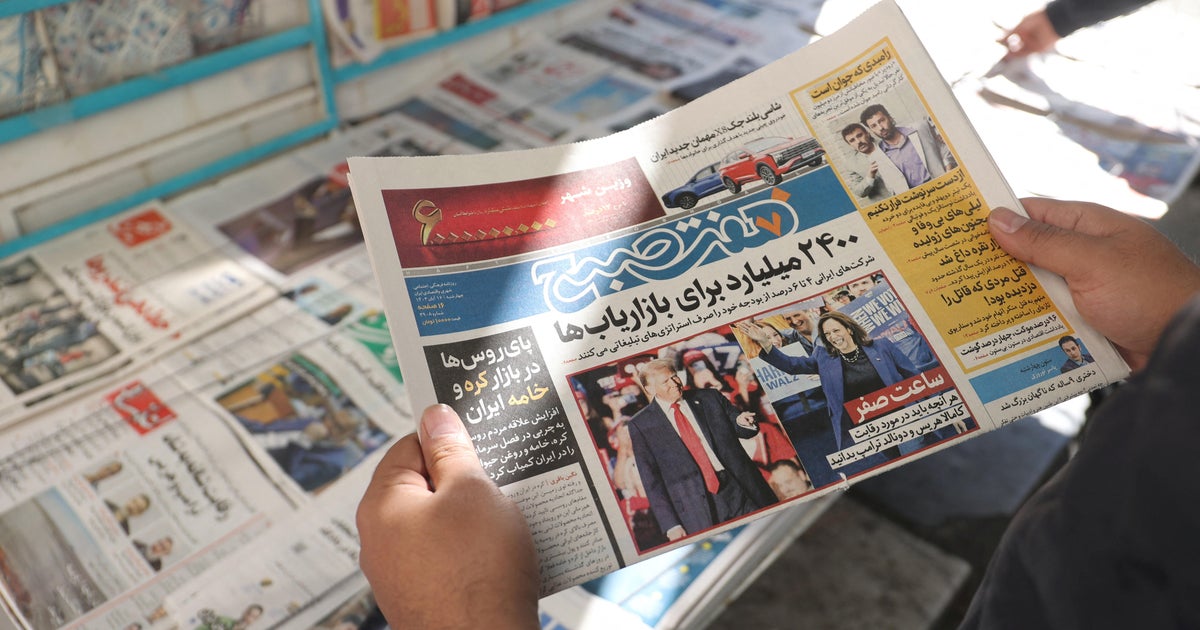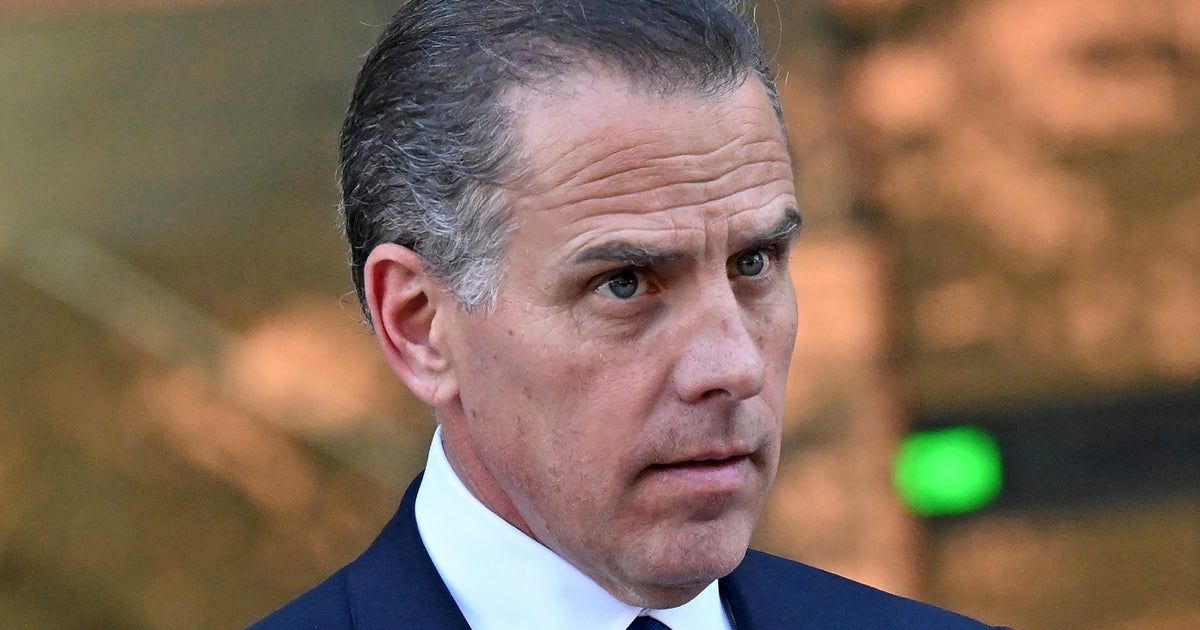Rep. Ro Khanna, a Biden ally, to meet with Arab American leaders in Michigan before state's primary
Democratic Rep. Ro Khanna of California, a surrogate for President Biden's reelection campaign, is meeting in his personal capacity with Arab American and Muslim leaders in Michigan this week to discuss U.S. policy toward Israel, amid a growing push by activists who are encouraging Democrats to cast protest votes in next week's primary.
Local organizers are pushing for Michigan voters to choose the "uncommitted" option in Tuesday's election as a way to object to the Biden administration's support for Israel in its war with Hamas in Gaza. Many Arab American activists in the state have also signaled they might not vote at all in the November general election, which could harm Mr. Biden's electoral chances in a critical battleground he won by a slim margin in 2020.
Khanna was an early supporter of a permanent mutual cease-fire between Israel and Hamas in Gaza, where the total death toll stands at more than 29,000 since Hamas' attacks across Israel on Oct. 7, according to the Gaza Health Ministry.
Last week, Mr. Biden said Israel should not move forward with an offensive in southern Gaza without a "credible" plan to protect civilians, and his administration has worked to negotiate a hostage deal that would pause fighting in Gaza for at least six weeks. The U.S. vetoed a U.N. Security Council resolution calling for an immediate humanitarian cease-fire on Tuesday, and instead circulated its own proposal linking a cease-fire to the release of hostages.
Khanna's visit to Michigan
Khanna is a member of the Biden campaign's "national advisory board," and was already planning to visit Michigan for an event with Rep. Debbie Dingell. He said he arranged meetings with community leaders himself to "show respect, to understand what their concerns are" and to talk about building support in Congress for a cease-fire, securing the release of hostages and opposing further aid to Israel.
"Engagement is necessary to earn back their trust. And this is feedback I'll provide my colleagues and the administration," he said in an interview with CBS News.
"It is insulting to be talking about electoral calculus when you're dealing with the kind of human tragedy [in Gaza]. I understand that. My interest is seeing what we can do to bring about a change in Congress and the White House on foreign policy," he added.
On Thursday, Khanna is attending a town hall at the University of Michigan with Dingell to discuss a cease-fire in Gaza, according to a copy of his schedule shared with CBS News.
He will then attend an event put on by the Michigan League of Conservation Voters with Democratic Rep. Rashida Tlaib, who was the first member of Michigan's congressional delegation to support the push to vote uncommitted in the state's primary.
Khanna will also meet privately with Abdul El-Sayed, a 2018 gubernatorial candidate whom Khanna supported, and Dearborn Mayor Abdullah Hammoud, who pushed for the Biden administration to call for a permanent cease-fire in Gaza. Hammoud wrote that he will be voting uncommitted in an op-ed in the New York Times on Tuesday.
On Friday, Khanna will meet with two Michigan state representatives, Ranjeev Puri and Abraham Aiyash, both of whom have advocated for a mutual cease-fire.
"By listening empathetically, we can hopefully win back the trust of this community that will be absolutely critical to winning Michigan, not just because of their votes, but because of the signal they will send to voters of color, young voters, progressives across Michigan and across the country," the California Democrat said.
The "uncommitted" vote
Organizers behind the "uncommitted" push say they're aiming to capture between at least 10% and 20% of the overall primary vote on Tuesday as a way of applying political pressure on Mr. Biden.
"It's a strategic opportunity to send a signal to the president that he's got to change course," said Joseph Geevarghese, the executive director of Our Revolution, a progressive group actively lobbying their members to vote uncommitted.
"What we are telling the White House is, you are risking not only your electoral future but our democracy with your insistence on this wrongheaded policy. So the onus is on them," said Wa'el Alzayat, the CEO of Emgage, a national Muslim voter organization holding phone banks in support of the uncommitted vote. Members of Emgage are expected to meet with Khanna during a community gathering on Thursday morning.
Michigan Democratic officials remain optimistic, holding on to the hope that increased outreach with "uncommitted" voters will help them come around to Mr. Biden come Election Day in November.
"You're hearing Michiganders express their viewpoints and an [un]committed vote is not a vote that says 'I'm not voting for Biden in November.' It's saying, 'I have concerns,'" Dingell said in a press conference last week. "It's a long time between now and November."
Khanna said while he has "tremendous respect" for the push to vote uncommitted, "if I were a Michigan voter, I'd vote for President Biden."
Khanna's trip comes after local leaders refused to meet with Biden campaign manager Julie Chavez-Rodriguez in late January. Local organizers also said a meeting with Vice President Kamala Harris earlier this month at the White House was postponed, due to the administration's relationship with Israeli Prime Minister Benjamin Netanyahu. Harris will be in the state on Thursday for an event on women's reproductive rights.
Both Alzayat and Geevarghese touted Khanna's foreign policy credentials on Gaza and the Middle East, as well as his previous outreach to Arab American and Muslim voters, as a reason that local leaders agreed to meet with him. Khanna called the willingness from some Arab American and Muslim leaders to meet with him "constructive."
In one meeting between Biden administration officials and Arab American and Muslim Michigan leaders in February, a top Biden aide admitted there were "missteps" in the communication of U.S. policy regarding Israel and Gaza.
Some attendees of that meeting walked away unconvinced.
"Our community is rightfully angry and will not accept future engagements or dialogues with this administration unless and until an immediate cease-fire is implemented," said Osama Siblani, the co-founder and former president of the Arab American Political Action Committee in Dearborn, Michigan. "We emphasize the need for tangible actions beyond mere rhetoric."




